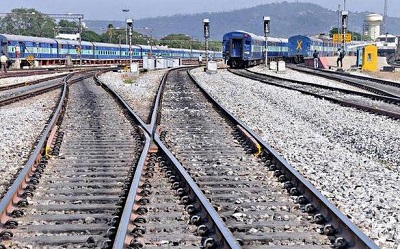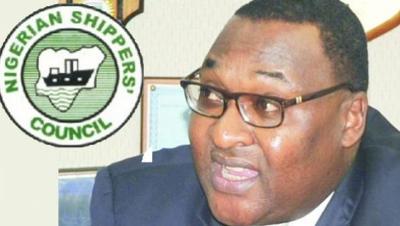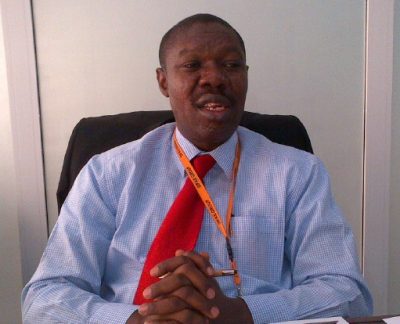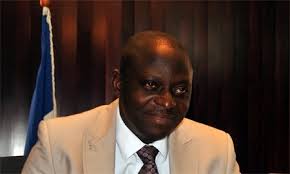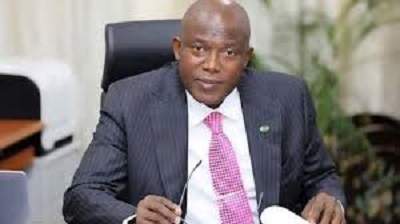Exploring The Benefits Of Railway Concession
Sustainable development is the pathway to the future we want for all. It offers a framework to generate economic growth, achieve social justice, exercise environmental stewardship and strengthen governance.—Ban Ki-Moon
Sustainable development as enunciated by Ban-Ki-Moon has its root in egalitarianism and freedom for all especially a conducive atmosphere for movement from a place to the other, hence, transportation.
Transportation is key to the economic development of every nation. It is through effective, accessible and standard transportation system that the movement of humans, goods and services are made possible. Advanced nations of the world have expanded and explored various means of transportation on land, water and air thereby enabling seamless movements from one location to the other.
Unfortunately, most of the third world countries are backward in terms of transport infrastructure as a result of technological inadequacies and other factors such as myopic and primitive approaches to development of the transport sector. While a state like Dubai is thinking of deploying the use of drones as Taxi after maximizing other means, Nigeria is still battling with the upgrade and repair of its dilapidated road, airports and abandoned railway systems.
Currently, the poor state of our roads can be attributed to the heavy duty trucks plying the roads with containerized goods while the numerous accidents and traffic jams experienced on Nigerian roads on daily basis cannot be isolated from the above.
The railway facilities constructed by the colonialists is expected to be optimally utilized to aid movements including consignments and petroleum products from the Nation’s ports to the Inland Container Deports (ICDs). Ironically, it has been left undeveloped for decades by successive governments after independence that most Nigerians are not even aware of the functionality of the Nigerian Railway System.
The Nigerian Minster of Transportation, Chibuike Amaechi, stated openly sometimes Tuesday, December 16, 2015 when he and other officials of the ministry toured facilities of the Nigeria Railways Corporation, NRC, in Lagos that “he never knew that the railways as a means of transportation still existed in Nigeria”.
The clamor by experts and concerned citizens had forced the Jonathan administration to swing into action towards reviving the Nigerian railway transport. The government claimed to have spent billions of Naira on the rail revival without any tangible result aside Abuja-Kaduna railway flagged -off by the Buhari’s government.
Not too long ago, the concession agreement reached between the Ministry of Transport and General Electric, (GE) (an American multinational conglomerate) on Nigeria’s railway infrastructure has been dogged with cynicism from Nigerian Union of Railway Workers (NURW). While government opined that concession can move the rail system forward, the union felt that the one reached with GE was an illicit deal that would yield no good. NURW maintained a strong objection to the policy on several grounds premised on the perceived danger of the concession.
The union alleged that the committee set up by the Vice President Yemi Osinbajo on August 12, last year to work out modalities for the concessioning met only once after its inauguration, adding that the transaction adviser has unilaterally handed over fixed and moveable assets of the corporation to officials of GE without any due process. President General of the union Comrade Saidu Garuba said that officials of GE are already inspecting the rail tracks without any consultation with the union. He feared that most of the existing workers could lose their jobs in the post-concession era as he averred that concession or privatization comes with job loss and other associated evils’. The Union alleged that the bidding process for the concessioning was not transparent just as the preferred bidder; GE, has no track record of managing railway operations and wondered how G E came up with an investment plan to pump $2billion investment into the corporation, adding that one locomotive engine that was procured during the regime of late President Umaru Musa Yar’Adua costs N500million.
It was also argued that NRC being the oldest government parastatal that funded the establishment of NIPOST, NITEL, amongst others should not be concessioned. On his part, Comrade Garba wants the government to adopt “re-nationalization” strategy meaning to work out an investment plan for the corporation for the procurement of rolling stocks and maintenance of tracks instead of concessioning the corporation.
MMS plus reporter who visited the Railway Corporation last week was taken round the facilities of the agency at Ebute Metta, Lagos by the Public Relations Officer. Mr Mamood Yakubu. While fielding questions from MMS Plus, Mr Mamood declined making comments on the Concession issue but explained that Nigerian Railway System is functioning excellently. “In Lagos and Ogun states alone, the train moves nothing less than ten thousand (10,000) passengers every day. We have two types of trains (the executive and economy) that move passengers from Iddo to Ijoku and from Apapa to Ijoku every day except Sundays which is meant for maintenance. The train is of fifteen (15) wagons with each carrying about Ninety (92) people (seated passengers). By implication, it means the train will accommodate more than One Thousand (1000) passengers at a time. The economy has light and ceiling fans inside while the executive train is fully air conditioned and they are very fast, convenient and cheap. When you board a train, there will be nothing like traffic jam. The weekly train moves from Lagos to Kano every Friday by 12 pm”. He said
The PRO who lamented low patronage said the railway system in Nigeria is experiencing radical transformation. “Just two weeks ago we received two locomotives at the ports. There are some people who will not use the train even if you are carrying them for free we have to start appreciating what we have and not condemning them. We cannot have everything perfectly. We only need to keep improving them”.
However, even as MMs Plus reporter saw a “Freight train” with twenty (20) containers moving towards Apapa, he also observed that over forty (40) “Tank wagons” NRC acquired five years ago to move petroleum products nationwide had been abandoned to rot away. With the capacity to carry 45,000 litres each, the 40 wagons could have been conveying 1,800,000 litres of petrol or other related products across the country from Apapa. That would have equalled 550 petroleum tankers with conveying capacity of 33,000 litres of fuel, taken off the road during each movement of the train.
One of the top officials of NRC who spoke with MMS Plus on the condition of anonymity supported the concession move. He said the railway system in Nigeria is going to be improved if it is given to the private sector. “When we say investors, it means people who put their resources together to make sure business succeeds in order to get more profits. There are lots of benefits in the railway system that has not been tapped.
“It is just like NITEL, people were skeptical about it being privatized but look at it today, everybody is having his own mobile phones. You don’t have to go the phone centers to make calls. In your own pocket you can send mails and talk to the whole world. The problem with Nigeria is that people are too pessimistic. When you are about to start something, they are quick at saying it won’t work. However, there are certain things that you have to continue to try until it yields the desired results. Some parents will condemn their wards for failing an examination after the first attempt but don’t be surprised that he might pass the next one”. He remarked.
To him, Nigerians must learn to accept and appreciate whatever they have rather than condemning it.
Above all, concession may be an alternative if government cannot continue to subsidize railway operations but government must beware of monopoly. Therefore, a level playing ground must be created for as many as possible investors to subscribe. Also, there must be guarantee of sustaining the existing workers so that they will not be thrown out of their jobs unjustly.
If the concessionaires’ intentions are genuine, they will truly invest in the rail system and ensure that their services are up to an acceptable standard so that more Nigerians are attracted to the railway system.
A sound railway transport system will see most of the fuel tankers and trailers off the roads as it will be readily available to convey bulky goods and fuel from the southern parts of the country to the Northern parts.
Our ports will be decongested and trailers and oil tankers would have no business dotting our roads. Of course road accidents will be minimal.

